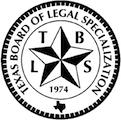What is the difference between DWI and DUI in Texas?
DWI obviously stands for “Driving While Intoxicated, while DUI is “Driving Under the Influence.” Other states attach the same, or different meanings, to either acronym, and are used quite often interchangeably. In some states a charge of DUI is the same, technically speaking, as a charge of DWI in other states. However, in the State of Texas, charges of DWI include only when someone is under suspicition of “operating a motor vehicle under the legal definition of intoxication.” The term intoxicated is defined as not having normal mental or physical faculties and this is all down to either alcohol consumption or through taking a dangerous drug. Intoxication can include substances such as alcohol, drugs and virtually any other intoxicating substance.
DUI, on the other hand, in Texas only applies to minors (and not adults). In Texas, only a minor can be charged with DUI if it is alleged that there is any “detectable amount of alcohol in their system.” In effect, it is the zero tolerance police have for anyone who is not of legal age to consume alcohol.
A DUI is a class C misdemeanor, while a charge of DWI is a class B misdemeanor unless the person has a BAC level of 0.15 percent or more. If this is case, one will be charged with the enhanced penalty of a Class A Misdemeanor criminal offense.






















